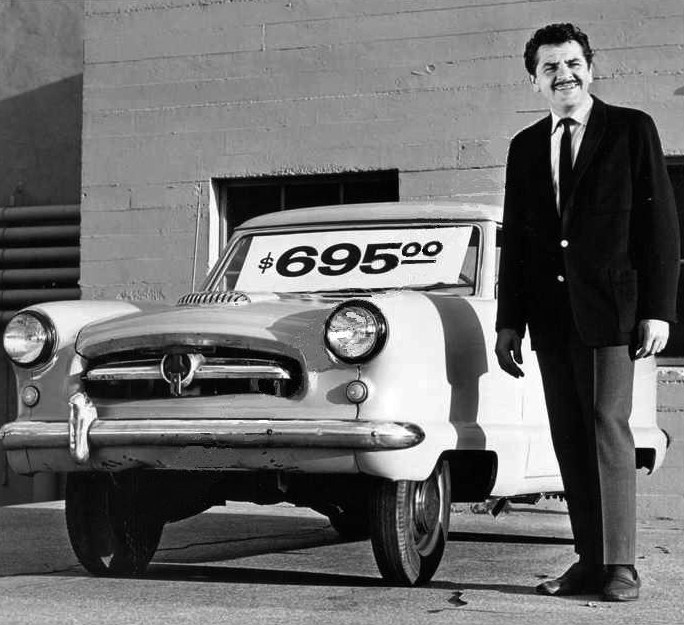Auto dealerships have always had something of a bad reputation. They’re the original home of pushy sales. And if they’re selling second-hand cars, they’re also the original home of bad products. Even as kids we were told that car salespeople can’t be trusted. In Roald Dahl’s classic, Matilda, Matilda’s father is a car salesman. He and his son try to make a quick buck by rewinding the wheels on the car with a drill to lower the mileage and filling the engine with sawdust. They make off with the money, and the customer is left for dead.
Unfortunately, auto dealerships have not recovered from their bad reputation. There are still many garages that employ pushy sales tactics rather than building long term relationships. And that can be a problem.

Credit: en.wikipedia.org
The problem with pushy sales techniques, unless you have a customer who wants to haggle, is that it tends to make the customer feel threatened. Often inexperienced sales people will do everything they can to close the deal. After all, there’s a lot of sales commission riding on selling the car. They’ll often keep lowering the prices, as if that’s the only way to sell, and expect their customer to take the bait. All the while, the customers is stood there flummoxed, wondering why the price keeps going down, as if by magic.
It’s not a great way to build trust. A much better way to build trust when selling an auto is to find out as much as you can about the customer’s needs. Get an open dialogue going. Get them to open up about their lifestyle and habits. Really imagine yourself in their shoes and think, what do they want from a car? Then use what you’ve learned to say how one of your cars could meet their needs. Let them imagine what it would be like to own that new car. Suddenly, what they’re buying will seem so much more relevant than before.
Dealerships also let themselves down by not reflecting on their weaknesses effectively. They fail to gather data on their performance, in other words. Feedback through automotive CSI (Customer Satisfaction Index) pinpoints any issues. It’s important that dealerships find out where they are scoring poorly in terms of customer satisfaction. Only then will they be able to address any issues.
Most often, customers are dissatisfied, not with the autos themselves, contrary to what Dahl suggests. They’re dissatisfied with the people doing the selling. That’s why it’s important for dealerships to change the way they operate and up their game.
The objective should be to build a rapport with the potential customer. Getting the customer to like you means that they’re more likely to feel good about buying a car from you. Most old-school auto salespeople will tell you to never take the car for a test drive. But when somebody else is in the driving seat, it’s a great opportunity for developing rapport. They’ll open up and tell you about their hopes and dreams. And they’ll give you all the information you need to make the auto they’re driving seem irresistible.




